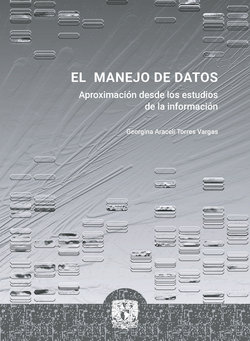Читать книгу El manejo de datos. Aproximación desde los estudios de la información - Georgina Araceli Torres Vargas - Страница 6
INTRODUCTION
ОглавлениеResearch Data Management (rdm) is a new area of service and infrastructure development at universities and research centers worldwide. The increasing volume and complexity of digital data, as well as the challenges associated with organization, preservation, and reuse of data, have contributed to the emergence of RDM as a priority in recent years. Modern science has increasingly become data-intensive with researchers using new methodology and instruments and producing an unprecedented amount of data (Borgman 2012). Digital technology has accelerated this process by providing new tools for collecting scientific evidence but also enabled building technical infrastructure for storing and sharing data. The researchers studying the growth of science found that global scientific output doubles every 9 years. Most of the scientific expansion has taken place in the modern era with the growth rate of 8 to 9% (Bornmann & Mutz 2015).
The motivations for deployment of RDM services are diverse, often emerging from a pragmatic need to comply with requests from funding agencies for data management planning, but also responding to the policy environment and calls for openness in science (Ayris et al. 2016; Fearon et al 2013; Pryor et al. 2013). National funding agencies in several countries now require researchers to prepare data management plans and to provide open access to data (NSF; UK Research and Innovation). The European Research Council (ERC) supports the principle of open access to research data and scholarly publications. It conducted a Pilot on Open Research Data for research projects funded through the Horizon 2020 program. As of 2017, the Pilot on Open Research Data has been extended and open access became the default for the research data generated as a result of the Horizon 2020 funding, although researchers can still opt out in some circumstances (ERC 2018). In addition to funder requirements, journal editors and publishers are increasingly requesting authors to provide open access to source data underpinning publications.
This paper provides an overview of RDM services and their importance in the context of Open Science. It summarizes the findings from the Data Curation project sponsored by the International Federation of Library Associations (IFLA) Library Theory and Research (LTR) Section. The IFLA study focused on the roles and responsibilities of RDM professionals in international and interdisciplinary contexts. This paper discusses the opportunities and challenges in providing RDM services in light of the findings from the IFLA Data Curation project.
